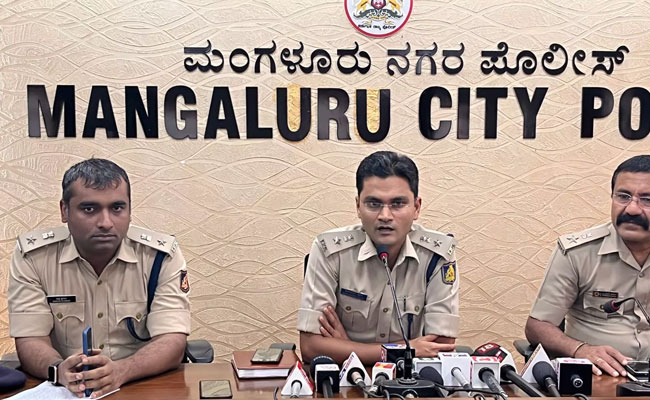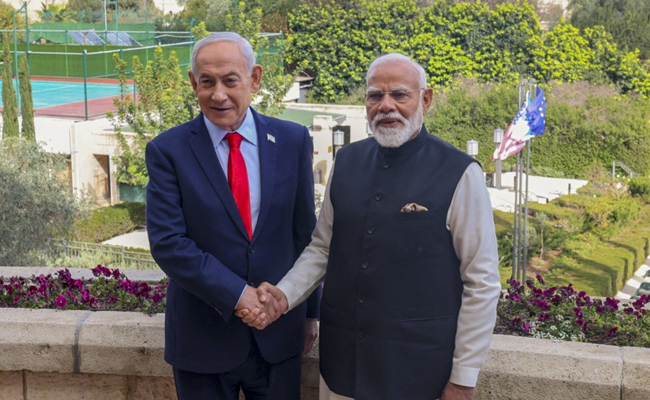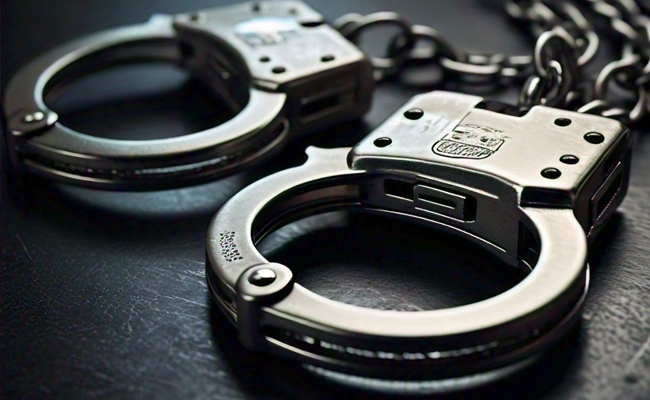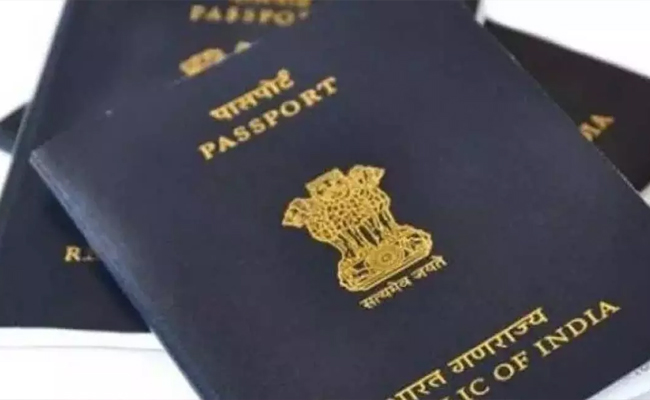Suratkal: The Suratkal police have successfully apprehended two notorious individuals involved in a series of thefts and two-wheeler robberies across various police stations in DK (Dakshina Kannada) and Udupi districts.
The arrested individuals have been identified as Habib Hasan from Suratkal Krishnapur and Muhammad Faizal from Kodi, Ullal.
Providing details of the operation, Mangalore City Police Commissioner Kuldeep Kumar R Jain stated on Monday that the arrested accused were found in possession of gold jewelry worth Rs 12,48,550 and two-wheelers worth Rs 1,34,000. The recovery of these items has led to the detection of 13 cases related to chain thefts and two-wheeler robberies spanning the two districts.
Notably, Habib Hasan has a previous criminal record and was implicated in over 35 cases under the jurisdiction of different police stations in both districts. Similarly, Muhammad Faizal faced charges in 15 cases and had served time in jail for one of them, being released in April.
The accused were presented before the First Additional CJM (Chief Judicial Magistrate) Court of the city on June 24, where the court ordered a 14-day judicial custody.
Let the Truth be known. If you read VB and like VB, please be a VB Supporter and Help us deliver the Truth to one and all.
Jerusalem (PTI): India and Israel on Thursday elevated their "time-tested" relationship to a special strategic partnership and agreed to soon firm up a "mutually beneficial" free trade deal even as Prime Minister Narendra Modi strongly backed the Gaza peace initiative, asserting that humanity must never become a victim of conflict.
Following talks between Modi and his Israeli counterpart Benjamin Netanyahu, the two sides inked a plethora of agreements to expand cooperation in areas of trade, agriculture, energy, cyberspace and digital payment.
India and Israel also vowed to expand their already close defence partnership by working towards joint development and joint production of military hardware under the framework of the transfer of technologies.
In his media statement, Modi said India's security interest is linked to peace and stability in the Middle East, adding that New Delhi fully supports the Gaza Peace Initiative.
"India's stance is clear: humanity must never become a victim of conflict. A path to peace has been created through the Gaza Peace Plan. India has fully supported these efforts," he said.
"In the future as well, we will continue dialogue and cooperation with all countries," he said.
PM Modi landed in Israel on Wednesday on a two-day visit. It is his second visit to Israel in nine years.
In his remarks, the prime minister said India and Israel have a united view that there is no place for terrorism in the world and both sides stand shoulder-to-shoulder in countering terrorism and its supporters.
"Our relationship is founded on the strong bedrock of deep trust, shared democratic values, and human sensitivities. Our bond has stood the test of every trial of time," he said.
"Today, we have taken the historic decision to elevate our time-tested partnership to the status of a 'Special Strategic Partnership'," he said.
The prime minister also announced the establishment of an India-Israel critical and emerging technologies partnership to impart a new momentum for cooperation in areas of artificial intelligence, quantum, and critical minerals. "I am pleased that an agreement has been reached for the use of UPI in Israel," he said.
The prime minister, referring to the threat of terrorism, said India and Israel will continue to confront the menace unitedly.
"India and Israel are completely clear that there is no place for terrorism in the world. In any form, in any expression, terrorism cannot be accepted," he said.
"We have stood shoulder-to-shoulder in opposing terrorism and its supporters, and we will continue to do so," he added.
India and Israel also discussed the implementation of the India-Middle East Europe Economic Corridor (IMEC) and cooperation under the framework of I2U2 (India-Israel-UAE-USA).





